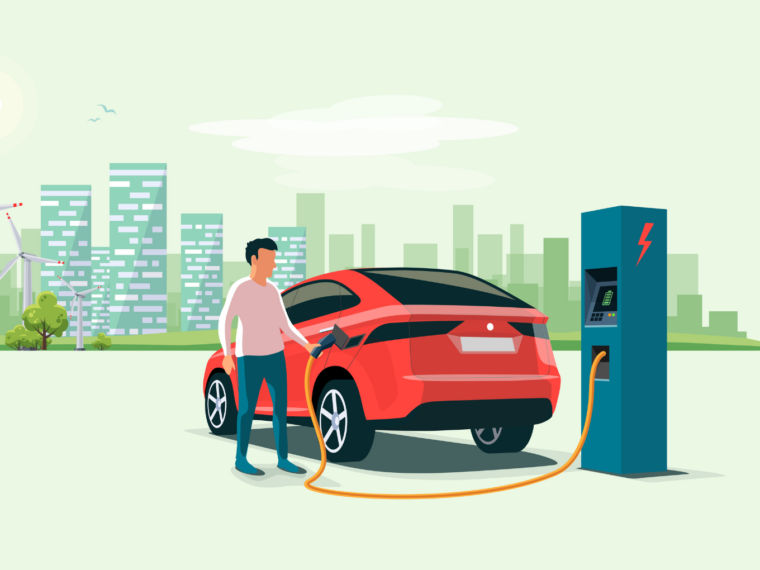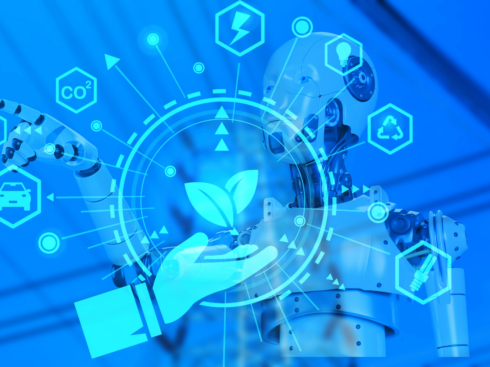
Apart from being a sustainable mobility solution, EVs can also play important roles in the economy, from filling gaps in the public transportation network to electrifying last-mile connectivity
In 2021, 3.3 Lakh units of EVs were registered in India, clocking a growth of 168% as compared to 2020
As India embarks on the EV journey, government support, collaboration among ecosystem players and the development of new business models are expected to be critical pillars
During the COP26 summit, Indian Prime Minister Narendra Modi pledged to reduce carbon emissions intensity in India by 45% by 2030 and achieve net zero by 2070, implying that increased EV adoption is the only way forward.
Apart from being a sustainable mobility solution, EVs can also play important roles in the economy, from filling gaps in the public transportation network to electrifying last-mile connectivity. Mobility is critical to a country’s economic prosperity. Rapid urbanisation and a growing population have increased mobility needs and travel demands, stimulating demand for vehicles.
However, the growing number of vehicles has an impact on air quality, adds to traffic congestion, and increases the country’s reliance on crude oil imports. The world is currently dealing with major natural disasters, with global warming being the primary concern. With vehicular pollution being the leading cause of global warming, clean mobility could be a game changer.
Electric vehicles are the way of the future, and e-bikes will be the most popular mode of transportation, resulting in a gradual reduction in automotive pollution.
Reasons For EV Adoption
Mobility Gaps
In a country like India, where the population is constantly growing, mobility gaps are widening at an alarming rate. Unfortunately, the public transport network falls short of meeting the surging mobility demands. As the gap continues to widen, more people are relying on personal vehicles as their primary mode of transportation.
EVs provide a smart solution to mobility issues without adding to pollution or traffic congestion. By introducing EVs in public and private transportation, such as e-buses, e-rickshaws and e-bikes, India can plug in mobility gaps and increase affinity for shared mobility solutions.
Rising Costs
In light of the BS6 emission norms and the recent surge in fuel prices, the price tag of ICE (Internal Combustion Engine) vehicles has increased. Since the pandemic and subsequent supply chain disruptions, India’s automobile market has been highly cost-sensitive. This is influencing consumers’ preference for cost-effective mobility solutions. According to an IVCA-EY-Industry Law Report report, India will have sold 9 Mn electric vehicles by 2027. Higher input costs and rising petrol prices are encouraging more consumers to forego the pump in favour of the plug.
Environment Consciousness
There is no denying that petrol and diesel cars add to pollution, but their contribution is not limited to just tailpipe emissions. In fact, the extraction of oil, refining it into fuel, transporting it to gas stations, and manufacturing ICE vehicles all contribute significantly to air pollution.
With ambitious carbon emission reduction targets staring India in the face, there is a concerted and deliberate shift toward cleaner mobility solutions. As people become more aware of climate change and its potential consequences, Indian cities and automakers are encouraging the use of electric vehicles.
How We Can Initiate EV Adoption
Diverse Suitability
EVs can play a central role in developing a sustainable mobility solution by electrifying public transport, supplementing last-mile connectivity and solving private mobility concerns. Electric buses and taxis can help fill gaps in public transportation, while electric two-wheelers can extend the last-mile delivery network. Furthermore, innovative mobility solutions such as e-bikes can perform well on both the work commute and off-road terrain.
In 2021, 3.3 Lakh units of EVs were registered in India, clocking a growth of 168% as compared to 2020. According to a report by the Indian Venture and Alternate Capital Association (IVCA) in collaboration with EY and IndusLaw, this surge in sales was led by 2Ws and 3Ws, which accounted for 48% and 47% of total sales, respectively, followed by passenger vehicles at 4%.
Improved EV Proposition
Ultimately, the success of EVs in India is determined by their overall cost economics. EVs may have higher acquisition costs, but their operating and maintenance costs are much lower compared to ICE vehicles.
With continuous improvements in cost of ownership, EV range, and price competitiveness with ICE offerings, the next wave of EV adoption is likely to occur soon. The introduction of innovative business models such as battery leasing and rental, battery swapping, and widespread availability of charging infrastructure is making the EV proposition even more appealing.
Policy & Regulatory Frameworks
A favourable policy environment in India has consistently boosted manufacturing and investment in the EV market. The FAME (Faster Adoption and Manufacturing of Hybrid and Electric Vehicles) scheme has significantly increased investment in the EV space.
According to a report released by Arthur D. Little, a management consulting firm, India’s EV industry attracted around $6 Bn in investments in 2021 and is expected to attract $20 Bn by 2030.
Furthermore, electric vehicles are covered by the Production Linked Incentive (PLI) scheme for automobiles and auto components, which was approved on September 15, 2021, with a budgetary outlay of INR 25,938 Cr for a five-year period.
Closing Thoughts
India is primed for mass EV adoption due to rising incomes and urbanisation, as well as mobility gaps and environmental consciousness. As India embarks on an EV adoption journey, government support, collaboration among ecosystem players and the development of new business models are expected to be critical pillars.
EV adoption caters to the value-conscious Indian consumer, the climate-conscious industrial and government bodies, as well as the disruptive ecosystem players looking to capitalise on innovation to challenge automobile incumbents. Ultimately, the mass adoption of EVs will play a pivotal role in plugging the gaps in existing mobility and driving India towards a sustainable future of mobility.






























 Ad-lite browsing experience
Ad-lite browsing experience